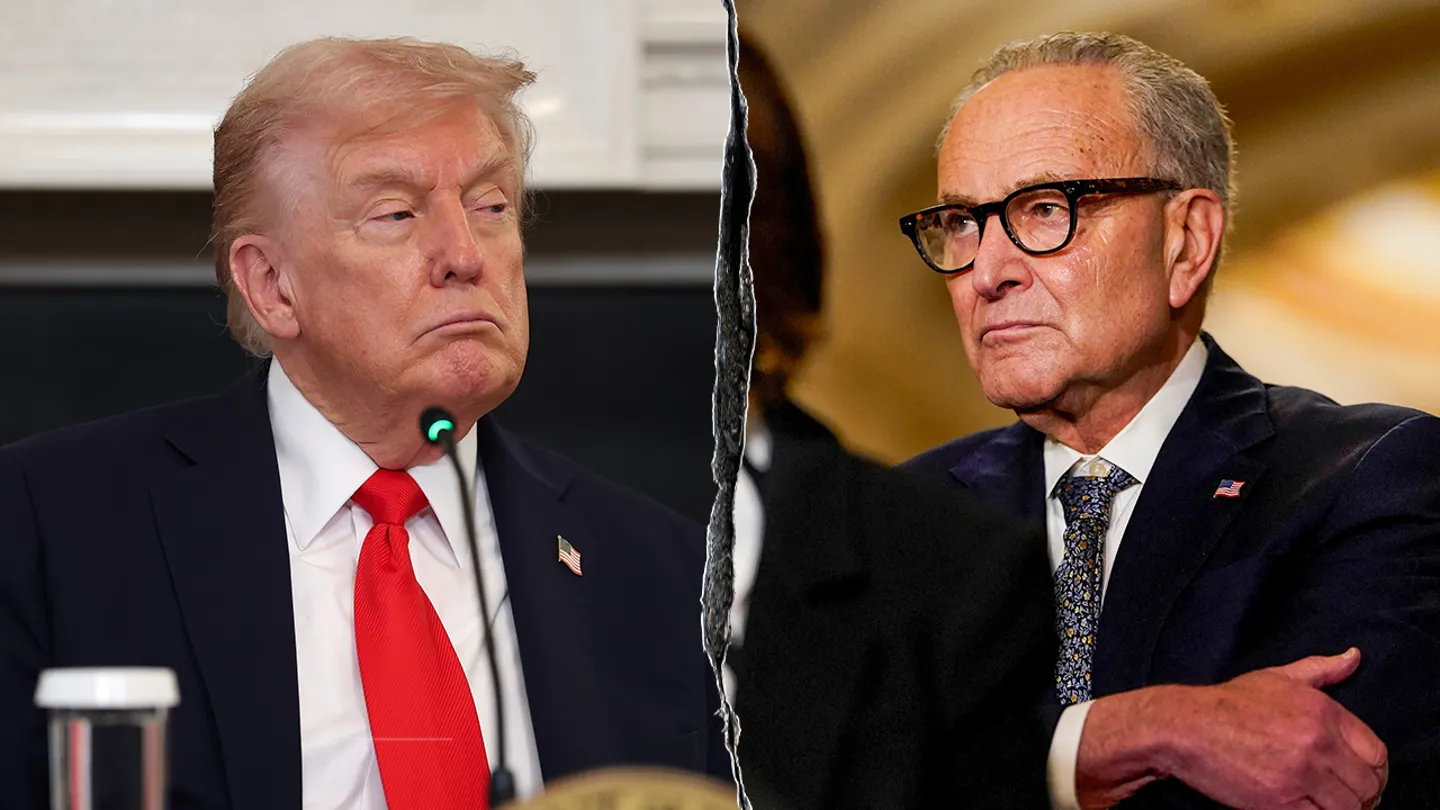The leafy trees on Magali and Hugo Urbina’s 350-acre orchard next to the Rio Grande river in Eagle Pass, Texas, should be bursting with pecans this time of year. Instead, most are barren.
The Urbinas blame the clouds of dust kicked up by Texas officials in trucks and ATVs after the state government in recent months put fencing and roads along the riverbanks in a contentious effort to deter migration from Mexico, just across the river.
People walk near buoys placed by Texas authorities in the Rio Grande to stop crossings from the Mexican side.
‘Like traps meant for animals’: death no deterrent at the Rio Grande river barrier
Read more
Republican Governor Greg Abbott’s latest salvo has extended to a barrier of giant orange buoys in the river.
The Urbinas suspect the flurry of activity interfered with pollination on their orchard, Heavenly Farms, where the Texas state tree has flourished for decades.
“They’re choking,” Magali said. The sense of an invasion on their property has left the couple, Texas natives of Mexican descent who voted for Abbott, feeling blindsided by what they see as his agenda to publicize a crackdown on the border in the face of what the governor argues is a soft approach by Joe Biden, the US president and a Democrat.
“It’s about money and votes, nothing else,” Hugo added. “We’re just collateral damage and they don’t care.“
It also risks further environmental damage to the delicate borderlands, where scientists say deserts, hills and wetlands along the nearly 2,000-mile frontier have been plagued by walls, shipping containers, helicopters and stadium lighting.
Migrants for years have forged the river from Mexico to Eagle Pass, part of increasingly higher numbers of people crossing illegally in recent years.
Abbott in 2021 launched a program he dubbed “Operation Lone Star” aimed at curbing illegal migration, including a campaign to bus migrants to Democratic-led cities further north and the deployment of thousands of national guard troops.
Yet migrants continue to enter Texas in large numbers. Over four days in late July, Reuters observed dozens of people cross daily near the Urbinas’ farm, including a group of some 50 people, only to be confronted with razor wire and Texas officials on the steep riverbank – property the Urbinas say is theirs.
Magali Urbina stands next to a state-built fence and razor wire on her property along the Rio Grande.
Magali Urbina stands next to a state-built fence and razor wire on her property along the Rio Grande. Photograph: Adrees Latif/Reuters
In one instance, a Venezuelan woman breastfed her 10-month baby while wading through the river, searching for a spot where she could get past the razor wire.
Abbott’s office referred Reuters to previous statements from the governor. He has accused Biden of failing to enforce migration laws and said he has the authority to “defend” Texas’ border.
The Urbinas’ frustration has put them in an unlikely alliance with environmental advocates who are concerned Abbott’s measures will harm wildlife along the Rio Grande.
“This is about big government trying to come in and steam-rolling a small town,” said Martin Castro, the watershed science director at the Rio Grande International Study Center. “They didn’t think anyone was going to stand up and speak out.”
Immigration enforcement is a federal responsibility, with Customs and Border Protection (CBP) tasked with securing the border. States are legally restricted in what they can do without coordinating with the federal government.
Privacy Notice: Newsletters may contain info about charities, online ads, and content funded by outside parties. For more information see our Privacy Policy. We use Google reCaptcha to protect our website and the Google Privacy Policy and Terms of Service apply.
after newsletter promotion
The Department of Justice has sued Texas over the buoys, arguing Texas installed them without proper federal approvals and studies of their impact on public safety and the environment. Mexico’s government says the buoys violate a water treaty and put migrants’ lives at risk.
In Eagle Pass, sediment falling into the river from the installation of fences and buoys is already altering the water’s flow, according to environmentalists.
That could damage habitats for local wildlife, including the endangered Texas hornshell mussel and the least tern, a small bird that nests along rivers, and affect the Monarch butterfly that migrates through the area.
Since 2005, the Department of Homeland Security, CBP’s parent agency, has been able to waive environmental laws to build border infrastructure.
“The borderlands are already suffering death by a thousand cuts,” said Laiken Jordahl, an advocate at the Center for Biological Diversity.
The Urbinas, who purchased the orchard in 2021 as a transition into retirement, say they may lose the harvest for another couple of years if they are forced to cut back the branches to keep the trees healthy. This year alone, they expect to lose just under $760,000.
Before the pecan farm, Magali was an elementary school teacher, and Hugo worked in the oil industry. Neither expected their farm to become a flashpoint in the border debate.
“Maybe we were put here so everybody could see exactly what is happening,” Magali said. “Politicians fight and don’t accomplish anything, and the ones that pay are innocent human beings.”
I hope you appreciated this article. Before you move on, I was hoping you would consider taking the step of supporting the Guardian’s journalism.
From Elon Musk to Rupert Murdoch, a small number of billionaire owners have a powerful hold on so much of the information that reaches the public about what’s happening in the world. The Guardian is different. We have no billionaire owner or shareholders to consider. Our journalism is produced to serve the public interest – not profit motives.
And we avoid the trap that befalls much US media – the tendency, born of a desire to please all sides, to engage in false equivalence in the name of neutrality. While fairness guides everything we do, we know there is a right and a wrong position in the fight against racism and for reproductive justice. When we report on issues like the climate crisis, we’re not afraid to name who is responsible. And as a global news organization, we’re able to provide a fresh, outsider perspective on US politics – one so often missing from the insular American media bubble.
Around the world, readers can access the Guardian’s paywall-free journalism because of our unique reader-supported model. That’s because of people like you. Our readers keep us independent, beholden to no outside influence and accessible to everyone – whether they can afford to pay for news, or not.
If you can, please consider supporting us just once from $1, or better yet, support us every month with a little more. Thank you.




